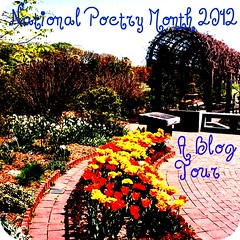Wild Place by Erica Goss is a chapbook, published by Finishing Line Press, examining the wild places within ourselves and our interactions with nature. Wild and untamed, the verse sings the beauty in the blame as humanity encroaches on nature, sometimes leading to its destruction and at other times unveiling the beauty beneath the scars. Goss has a talent for using few words to create a powerful and vivid image that sends a message to the reader about the wildness of nature and ourselves. From “This Is a Wild Place” (page 10), “The little junk birds peck at foil,//and I am called away from my body/to forage for my life/out in the open.//” and from “New Colors” (page 16), “in an anonymous/coffee shop/a child waved/to me from//his father’s arms/fingers opening/and closing like/pink fronds//of a sea anemone.//”
Some poems are haunting, like “The Redwoods,” in which she compares the trees to whales sifting krill and how they sing in the windy darkness. She tackles the fears of aging and clinging to the the past in several poems, including “The Redwoods,” but rather focus on nostalgic rose-colored images of the past, she highlights the splinters that gnaw at our sensibilities and the scars they create and how they shape who we become. There is a certain wisdom that we all garner as we age, and rather than celebrate it, many times we are too focused on what might have been.

Even as Goss uses nature imagery to pull out her themes of aging, fitting in, and moving onward, she also does an excellent job providing breathtaking verse about mechanical objects, such as the airplane in “Leaving Frankfurt.” Readers will rise and fall with the aircraft as it leaves one city for another and the narrator immerses herself in the experience. Wild Place by Erica Goss is stunning to the point where readers will not look at the world in the same way; they will be forced to look further, to think harder, to accept more — broadening their perspective and horizons so that they become more conscientious about themselves and the world around them.
Poet Erica Goss
About the Poet:
Erica Goss is the winner of the 2011 Many Mountains Moving Poetry Contest. Her chapbook, Wild Place, was published in 2012 by Finishing Line Press. Her poems, articles and reviews have appeared in many journals, most recently Connotation Press, Hotel Amerika, Pearl, Main Street Rag, Rattle, Eclectica, Blood Lotus, Café Review, Zoland Poetry, Comstock Review, Lake Effect, and Perigee.
She won the first Edwin Markham Poetry Prize in 2007, judged by California’s Poet Laureate Al Young, and was nominated for a Pushcart Prize in 2010. Erica teaches creative writing and humanities in the Bay Area and is a contributing editor for Cerise Press. She holds an MFA from San Jose State University. If you live in California, please attend one of her local events near you.
***For today’s National Poetry Month blog tour stop, please visit Indie Reader Houston.***
This is the 8th book for my 2012 Fearless Poetry Exploration Reading Challenge.






Oh wow, this collection really sounds fantastic Serena! That book cover is amazing as well – I’d love to be wherever that is.
Hi Darlene – the cover is a photo of Sutro Baths, on the extreme western edge of San Francisco. It was a private resort with several bathing and swimming pools. It’s now owned by the Golden Gate National Recreational Area. Photographer Howard Partridge took the photo last year. I thought it illustrated my concept of wild vs. cultivated space, and the speed at which Nature reclaims neglected areas.
What’s really interesting to note is that the photograph on the cover reminded me of a place in the Azores where residents jump off of cliffs into the Atlantic ocean.
That is interesting. When Howard took the photo, he had to position himself in such a way that he almost fell, although in this case he would have fallen into the Pacific after bouncing from the rocks!
Yeah, I was too chicken as a teen to attempt jumping off the cliffs in the Azores, even though there were kids younger than me doing it without trepidation.
Congratulations, Erica, on your chapbook and Serena’s review!
I hope you enjoyed the review.
I really am enjoying your poetry month!!
I’m so glad that you are. I have a few more posts and then it will be back to the eclectic mix.
It must be a great poetry collection if you insisted I borrow it. 😉 Can’t wait to read it.
I can’t wait to see your review.
Thank you, Serena, for this lovely review. After a rather crushing rejection, it does me such good to read your words, which flow like a poem.
I hope that these words in this review have made you smile. This was an excellent collection.
Just reading the words from “This Is a Wild Place” has me hooked. This is definitely going on my list.
I guess I’m making that list bigger and bigger
This does sound like a volume I would like. I’ll check it out; thanks!
I hope you do check it out. very powerful